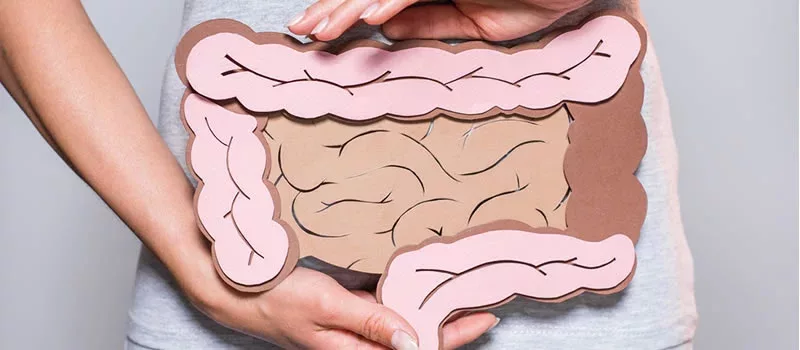
How to maintain better digestive health
In this article
There are many factors that can cause poor digestion which should be monitored in an effort to keep your digestive system healthy. Maintaining a healthy diet and regular exercise will go a long way to supporting digestive well-being.
Signs of a healthy gut
Regular bowel movements — This is slightly different for everyone, but they should occur between three times a day and three times a week. Stools should not be hard or difficult to pass.
Stool appearance — A healthy stool will generally be semi-solid requiring minimum strain. It will be smooth or may have a few cracks on the surface. It should be medium brown in colour and easy to flush without sticking to the side of the bowl. It shouldn’t contain undigested food pieces or have a particularly bad odour.
Gas — You may not admit it but everyone has gas. In fact, most people will burp or pass gas 14-23 times per day! It is totally normal and is produced by the breakdown of particular undigested foods in the large intestine. Common culprits are wheat, broccoli, Brussels sprouts, peas and fruit. It can also be caused when you swallow small amounts of air when eating or drinking.
What are the causes of poor gut health?
Symptoms of poor digestion include abdominal discomfort, regular bloating, nausea, diarrhea or constipation. A poor diet — such as eating too much fried food — can cause problems and some people can be intolerant to particular foods such as dairy and wheat. Other factors, including stress, can have a significant effect on the intestinal function and on the secretion of digestive enzymes.
How to improve your gut health
Thankfully, there are lots of ways to improve the health of your insides. These include chewing your food properly to ensure the stimulation of digestive enzymes, a good diet, plenty of exercise.
If you have been experiencing symptoms of poor gut health you could start by “cleaning out” your digestive system with a detox program. You can detox by increasing your daily intake of water, fresh fruit, vegetables and other gut-friendly food as well as taking a supplement formulated to detoxify your body gently. Nature’s Own offers a range of supplements which can help support you in your detox including milk thistle and dandelion.
If you are experiencing irritation in the throat and digestive tract, slippery elm can be a great stomach soother. Fenugreek has traditionally been used in Western herbal medicine to aid in the process of digestion and can help to relieve constipation.
Diet is also an important consideration. There are many foods that support good gut health. A high-fibre diet is also key, so be sure to include plenty of cereals, fresh fruit, salad and vegetables.
It is also well established that probiotics can be especially helpful in maintaining or re-colonising the good bacteria in your digestive tract, particularly after a dose of antibiotics or gastrointestinal illness. They are naturally present in fermented foods such as yoghurt, kimchi, kefir, sauerkraut, kombucha, miso and tempeh.
The best approach to ensure optimal digestive health is to evaluate your diet and lifestyle to make the necessary changes. Exercise, nutritional changes, and supplements may help to support the beneficial flora in your gut.